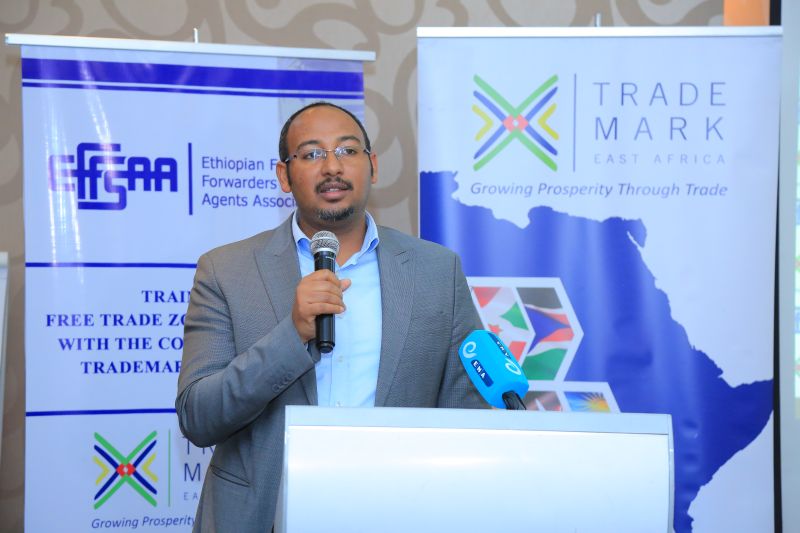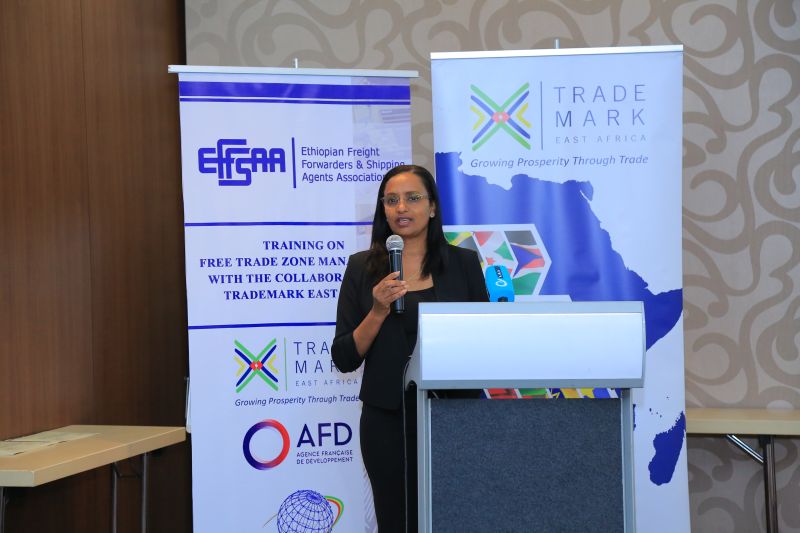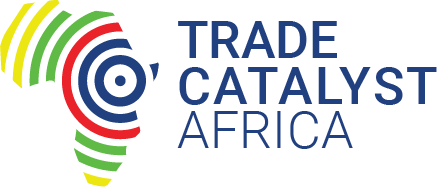TradeMark East Africa facilitated a training for Ethiopian Freight Forwarders and Shipping Agents Association (EFFSAA) to prepare them to take advantage of initiatives such as Free Trade Zones and the opportunities in regional and international trade. The two-week training is part of the larger Ethiopia-Djibouti Transport Corridor programme funded by the European Union (EU), through the French Development Agency (AFD).
The freight forwarding, shipping and logistical sector actors play a major role in the operationalisation of Free Trade Zones (FTZ), a new concept in Ethiopia, and their knowledge on this area is limited. The Dire Dawa Free Trade Zone is the first such landmark in the country.

Acting as exchange hubs where imports and exports of goods are handled at designated customs bonded areas, Free Trade Zones are designed to promote international trade in their role as either trade or manufacturing hubs. They, therefore, rely on processes conducted by skilled and highly integrated logistics service operators with an eye on overseas markets.
According to Abenet Bekele Haile, TradeMark East Africa Deputy Country Director for Ethiopia, the training happened at an opportune time of widespread regional trade facilitation initiatives aimed at improving export competitiveness and eliminating trade obstacles.

“This is part of the private sector capacity-building process for freight forwarders, clearing agents, and shipping agents. These are critical stakeholders in the operationalisation and success of the Free Trade Zone, which is tipped to be a major transactional centre for cargo along the Djibouti corridor in the future,” he said.
The training benefitted about 50 Dire Dawa Free Trade Zone staff, logistics professionals from public and private sector institutions based in Addis Ababa. The training covered subjects such as operationalisation of a free trade zone, customs procedures and actors involved, international maritime transport and processes, the role and significance of freight forwarders, safety and security, risk mitigation, dangerous cargo categorisation, among others.

